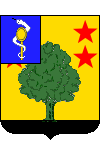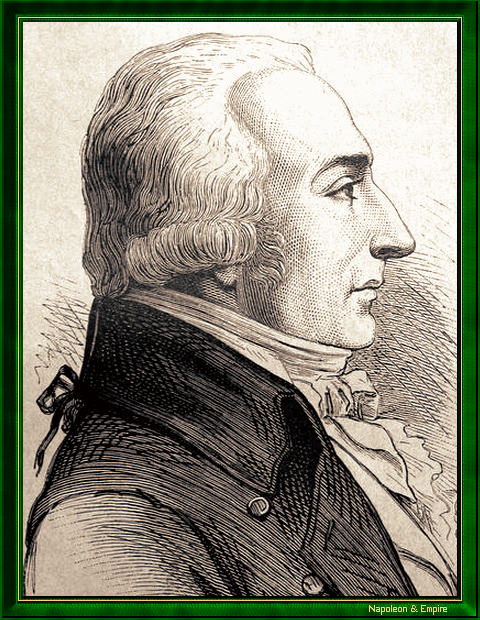Pierre-Roger Ducos a.k.a. Roger Ducos
Count of the Empire
Pronunciation:

Pierre-Roger Ducos was born on July 25, 1747 in Montfort-en-Chalosse, Gascony.
A lawyer in Dax, he was elected by the Landes department to the Convention, where he voted for the death of Louis XVI.
His prudence dictated that he should be noticed as little as possible, so he was mainly involved with the Public Relief Committee, and took no part in the fall of Maximilien de Robespierre. Returning to the Landes region, he resumed his duties as president of the criminal court, which he had left after his election.
He left his province again at the request of Paul Barras, who had him elected Director in place of Merlin de Douai on June 18, 1799. Barras got his money's worth: his front man, a fine fly, made common cause with Emmanuel-Joseph Sieyès. Aiding and abetting the coup d'état of 18 Brumaire, he was appointed provisional third consul, subsequently accepting a seat in the Conservative Senate, and was created Comte d'Empire in May 1808.
In this intelligent career, Ducos made one mistake: voting for the death of the king. Exiled in 1816 during the Second Restoration as a regicide, he left for Germany, where he died in a carriage accident near Ulm. The date of his death is usually given as March 16, but according to the written testimony of his faithful servant Pierre Romeus, who gives a detailed account of the events, Roger-Ducos died on April 4, was buried on the 7th and the funeral mass was held on the 8th. As an eyewitness, organizer and person in charge of the burial, his highly coherent chronology is to be preferred.
"Pierre-Roger Ducos a.k.a. Roger Ducos". Nineteenth Century engraving.

Roger-Ducos having also asked Pierre Romeus to carry his heart to the church in Narosse, where he owned several properties, the servant carried out this last wish and, on October 22, 1816, placed the urn in the church floor dug for the purpose. It was this urn that Abbé Bayse discovered by chance in 1991 during other excavations undertaken following chance finds and building work. It was exactly in the place indicated by Romeus. Since then, a plaque indicates its new location in the floor to the right of the choir. The remains of the deceased have never been found. In December 1944, the church and cloister were largely destroyed in a bombing raid.
Roger Ducos was the brother of Nicolas Ducos, General and Baron d'Empire.